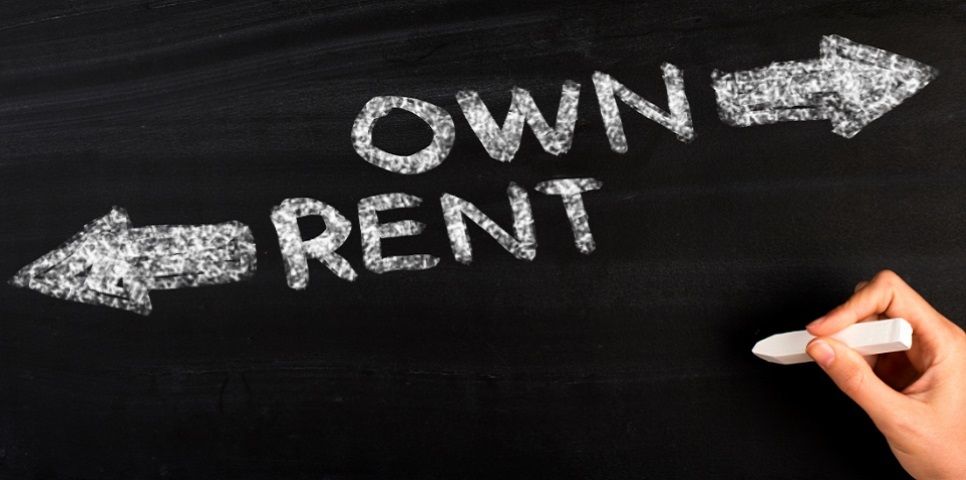When it comes to finding a place to live, you have the option to rent or buy a property. Both choices have their advantages and considerations, and it's important to carefully evaluate your circumstances and preferences before making a decision. In this article, we will explore the pros and cons of renting and buying to help you make an informed choice.

The Pros and Cons of Renting
Pros of Renting
Flexibility: Renting provides flexibility, allowing you to easily relocate or change your living arrangements without the commitment of owning a property.
Lower Initial Costs: Renting typically requires lower upfront costs, as you don't have to make a down payment or cover expenses such as property taxes or maintenance.
Reduced Responsibilities: Renters are not responsible for major repairs or maintenance costs, as these are typically the landlord's responsibility.
Access to Amenities: Rental properties often come with amenities such as fitness centers, swimming pools, or shared common spaces.
Cons of Renting
Limited Control: Renting means you have less control over the property, including restrictions on making changes or renovations.
Rent Increases: Rent prices may increase over time, which can affect your monthly budget.
No Equity Building: Rent payments do not build equity or contribute to long-term wealth accumulation.
Lack of Stability: Landlords may choose not to renew leases or sell the property, potentially leading to the need to find a new place to live.

The Pros and Cons of Buying
Pros of Buying
Long-Term Investment: Buying a property allows you to build equity over time, potentially leading to long-term wealth accumulation.
Stability and Security: Homeownership provides a sense of stability and security, knowing that you have a place to call your own.
Personalization: As a homeowner, you have the freedom to customize and make changes to the property according to your preferences.
Potential Tax Benefits: Homeownership can come with tax advantages, such as deducting mortgage interest or property tax payments.
Cons of Buying
Higher Upfront Costs: Buying a property requires a down payment, closing costs, and ongoing expenses such as property taxes, insurance, and maintenance.
Responsibility for Maintenance: Homeowners are responsible for repairs and maintenance, which can be costly and time-consuming.
Less Flexibility: Selling a property can take time and may be subject to market conditions, limiting your ability to move quickly.
Market Risks: The value of a property fluctuates, and there is no guarantee of a return on investment.

Financial Considerations
When deciding between renting and buying, consider your financial situation and goals. Calculate your budget, including monthly expenses, potential mortgage payments, property taxes, insurance, and maintenance costs. Compare the costs of renting and buying to determine which option aligns better with your financial capabilities and long-term objectives.
Flexibility and Lifestyle Factors
Evaluate your lifestyle and future plans. Renting provides flexibility for those who anticipate changes such as job relocations or personal circumstances. If you prefer stability and the freedom to customize your living space, homeownership may be more suitable. Consider your lifestyle preferences, desired location, and the length of time you plan to stay there.

Maintenance and Responsibilities
Assess your willingness and ability to take on maintenance responsibilities. Renting relieves you of major repair costs and maintenance obligations, but it also limits your control over the property. Homeownership comes with the responsibility of maintaining and repairing the property, which requires time, effort, and financial resources.
Long-Term Investment vs. Monthly Expenses
Consider your financial goals and priorities. Renting may offer lower monthly expenses initially, but it does not build equity. Buying a property can be a long-term investment that potentially appreciates in value and contributes to your overall net worth. Evaluate your preferences and weigh the benefits of immediate affordability versus long-term financial growth.
Market Conditions and Affordability
Research the current real estate market and consider factors such as property prices, mortgage interest rates, and availability of rental properties. Determine the affordability of buying a property based on your financial situation and the local market conditions. Additionally, assess the rental market to ensure that renting is a viable and cost-effective option for you.

Personal Preferences and Future Plans
Ultimately, your personal preferences and future plans play a significant role in the decision-making process. Consider factors such as stability, sense of ownership, desire for customization, and your long-term goals. Evaluate how renting or buying aligns with your vision of a home and the lifestyle you want to pursue.
Seeking Professional Advice
Consulting with a real estate agent or financial advisor can provide valuable insights tailored to your specific circumstances. They can help you assess the local market, analyze your financial situation, and guide you in making an informed decision. Their expertise and knowledge can help you navigate the complexities of renting or buying real estate.
Renting and buying both have their advantages and considerations. The decision should be based on a careful evaluation of your financial situation, lifestyle preferences, long-term goals, and market conditions. Consider the pros and cons of each option, seek professional advice, and make a choice that aligns with your needs and aspirations.
Posted by Infinity Admin on

Leave A Comment